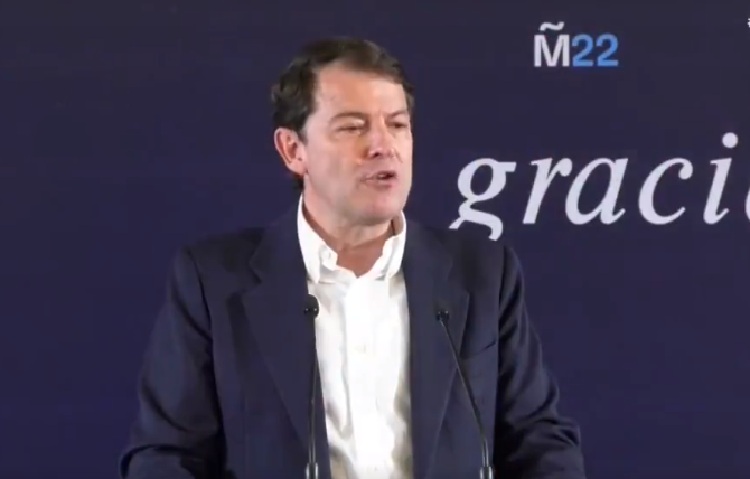Ángel Collado
The Popular Party won the regional elections in Castile and León, but with such a narrow majority that the future government in the region depends on pacts with the extreme right of Vox, as is convenient for Pedro Sánchez in order to support his argument against Pablo Casado.
If the PP fell short of its own expectations at the start of the election campaign, gaining only two seats, the PSOE fared worse in numerical terms, losing seven and coming second.
The result of the elections is null and void for Sánchez’s stability at the head of the central government, despite the PSOE’s failure with the backing of the central government and all the governmental media, including the Centro de Investigaciones Sociológicas, which promoted the idea that a socialist victory like the one recorded in 2019 was possible.
The data reflect the erosion of Sanchismo in the region, from 35 to 28 procurators, but at the same time confirm the division of the centre-right that Casado is unable to concentrate.
The emergence of Vox in the Castilla y León parliament, from one seat to 13, makes the PP dependent on the extreme right, just as it was previously obliged to come to an understanding with Ciudadanos, the party founded by Albert Rivera, which presented itself as a centre party. This change of partner was Sánchez’s great hope to conceal his failure in the elections and at the same time maintain his campaign against Casado because of the PP’s dependence on the extreme right headed by Santiago Abascal to confirm itself as a government alternative. This is the most positive thing for the interests of the chief executive with an eye on the general elections of 2023.
The minimal victory of the Popular Party in Castilla y León, far from serving Casado to consolidate his position as head of the opposition, as was planned at the beginning of the elections, could become an added problem for the president of the PP. And more, because of the expectations created at the beginning by the final results: from proposing a victory in the region like that of Isabel Díaz Ayuso in Madrid last May (on the verge of an absolute majority and without depending on Vox) to finding himself in the hands of Abascal.
The PP has not increased its percentage of the vote with respect to the 2019 regional elections (it remains at 31 per cent) despite the virtual disappearance of Ciudadanos, 15 per cent three years ago. The Popular Party has not picked up the votes of Cs, while Vox has gone from 5 per cent to 17 per cent to further divide the right-wing electorate.
Abascal has already stated that Vox will demand to enter the cabinet formed by the popular candidate for the Presidency of the Junta, Alfonso Fernández Mañueco, the winner of the elections. Vox will not be satisfied with external support or abstention in the investitures of PP leaders, which is the formula in force in other autonomous communities and city councils.
Abascal’s message augurs a long negotiation in Castilla y León to form the new cabinet, which will be followed by an internal debate in the national leadership of the PP due to the need to establish a new strategy in its relations with the extreme right.
Sánchez’s populist partners confirm their irrelevance in Castilla y León. Podemos loses one seat from the two it had before. The socialist attrition does not feed the options of their communist allies, who still do not get more than 5 per cent of the vote.
The main novelty of the elections is the rise of provincial parties in the region, both in León and Ávila, constituencies where local parties already had representatives. The emergence as the leading party in Soria of a provincial platform with three representatives stands out. All of them are irrelevant for forming a government, but for the next national elections they herald an even greater division of political representation in Congress and the Senate.





